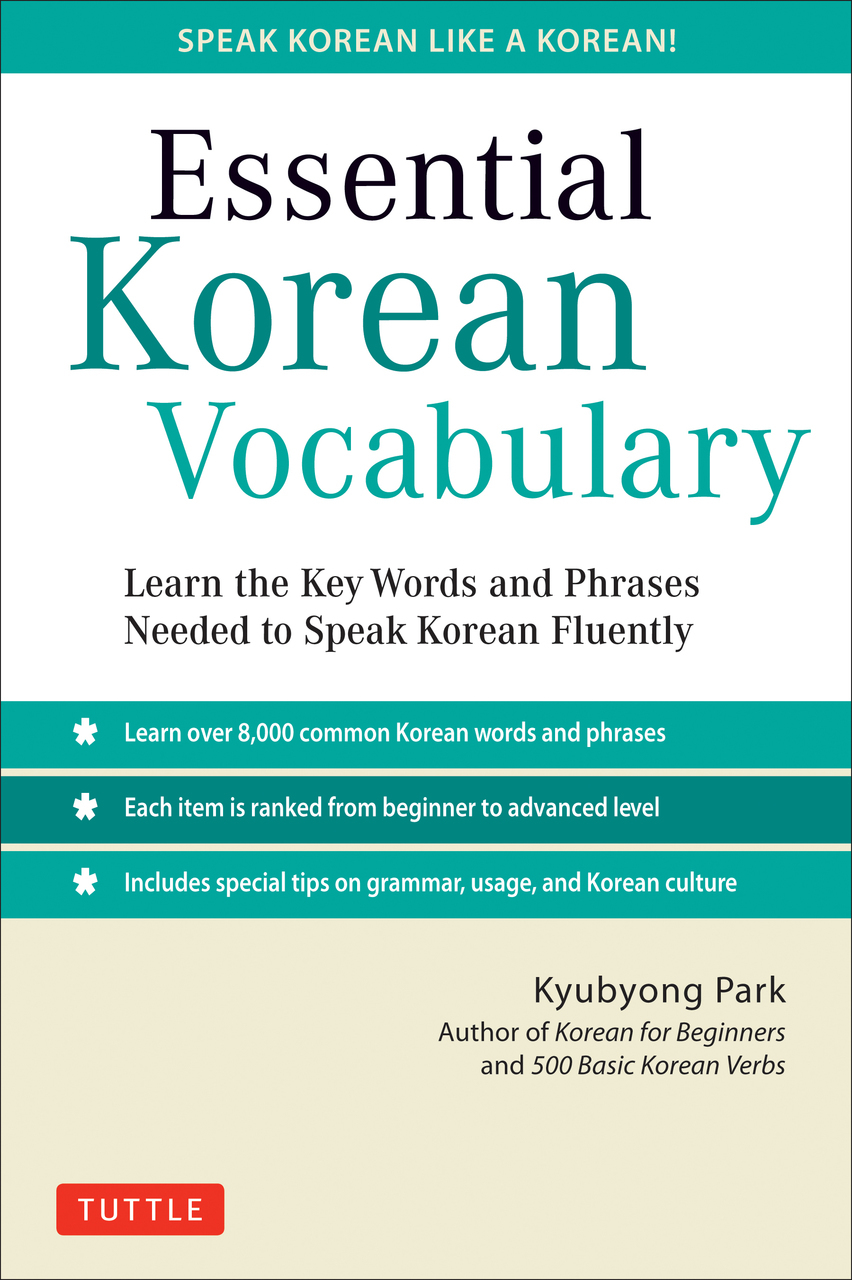Nobody would deny that a dictionary is a must-have for anyone who’s serious about learning Korean. However, dictionaries’ utility is limited: most dictionaries don’t provide key information that English speakers need to know, such as examples of a particular word in context, or background regarding the cultural implications of using certain words and phrases.
That’s where Tuttle’s Essential Korean Vocabulary comes in. Essential Korean Vocabulary is a dictionary packed with extras: it’s 600 pages consisting of not just words and their definitions, but also illustrative sentences, common misspellings, cultural information, and more.
Especially useful as a supplement to Korean language classes, Essential Korean Vocabulary is a great addition to any intermediate (or advanced) Korean language learner’s bookshelf.
A dictionary packed with extras
Essential Korean Vocabulary squeezes in a total of 8000 words, meaning that it’s comparable to most traditional Korean-English dictionaries. But unlike traditional dictionaries, it offers a lot more than simple definitions. For starters, all words have spelling both in hangul and Roman characters. And nearly all definitions are accompanied by an illustrative sample sentence, which comes with an English translation.
One of the most simple yet helpful features in Essential Korean Vocabulary is that all words are ranked in terms of their prominence. Words with three dots are the most common and important to know, while words with one dot are not very frequently used, and words with two dots are somewhere in between. This allows the learner to prioritize which words are most crucial to master -- something that is especially useful when reading books in Korean.
Words in Essential Korean Vocabulary are not listed alphabetically: they’re organized into logical themes and subthemes. For instance, the “food” section covers basic food items like 설탕 (sugar). Then, it explores general food-related terms like 먹다 (to eat), as well as places to eat, such as 레스토랑 (restaurant), before delving into specific cooking terms like 쪄다 (to steam). (By the way, all the aforementioned words have 3 dots, except “to steam”, which has only one.)
Key linguistic and cultural information
Essential Korean Vocabulary accompanies its words with a host of informative symbols that can help you figure out links between related words and avoid common pitfalls that learners often fall victim to. For example, A = B means that words A and B are synonymous and interchangeable, while A ← B means that word A is often misspelled as word B.
The dictionary is also peppered with tidbits of useful cultural and linguistic information, which is especially important for those who are traveling to Korea but aren’t familiar with its culture. For example, in its section describing numbers and age, Essential Korean Vocabulary explains naming conventions in Korean, pointing out that one’s family name comes before one’s given name.
An ideal complement to language classes
Essential Korean Vocabulary is an exceptionally valuable tool, but it’s important to understand its intended purpose. It’s not intended to teach you the grammatical intricacies of Korean, nor give details regarding the pronunciation of Korean words, but instead provide insight into the culture and usage of the parts of the language. Therefore, it’s best for learners who already have a decent grasp of the basics.
For this reason, Essential Korean Vocabulary shouldn’t be treated as a standalone book, but rather as a supplement to one-on-one Korean classes with a native-speaking Korean teacher or an intensive self-study regimen. Overall, we highly recommend it for students who want to increase their vocabulary and gain a deep understanding of Korean words are used.


